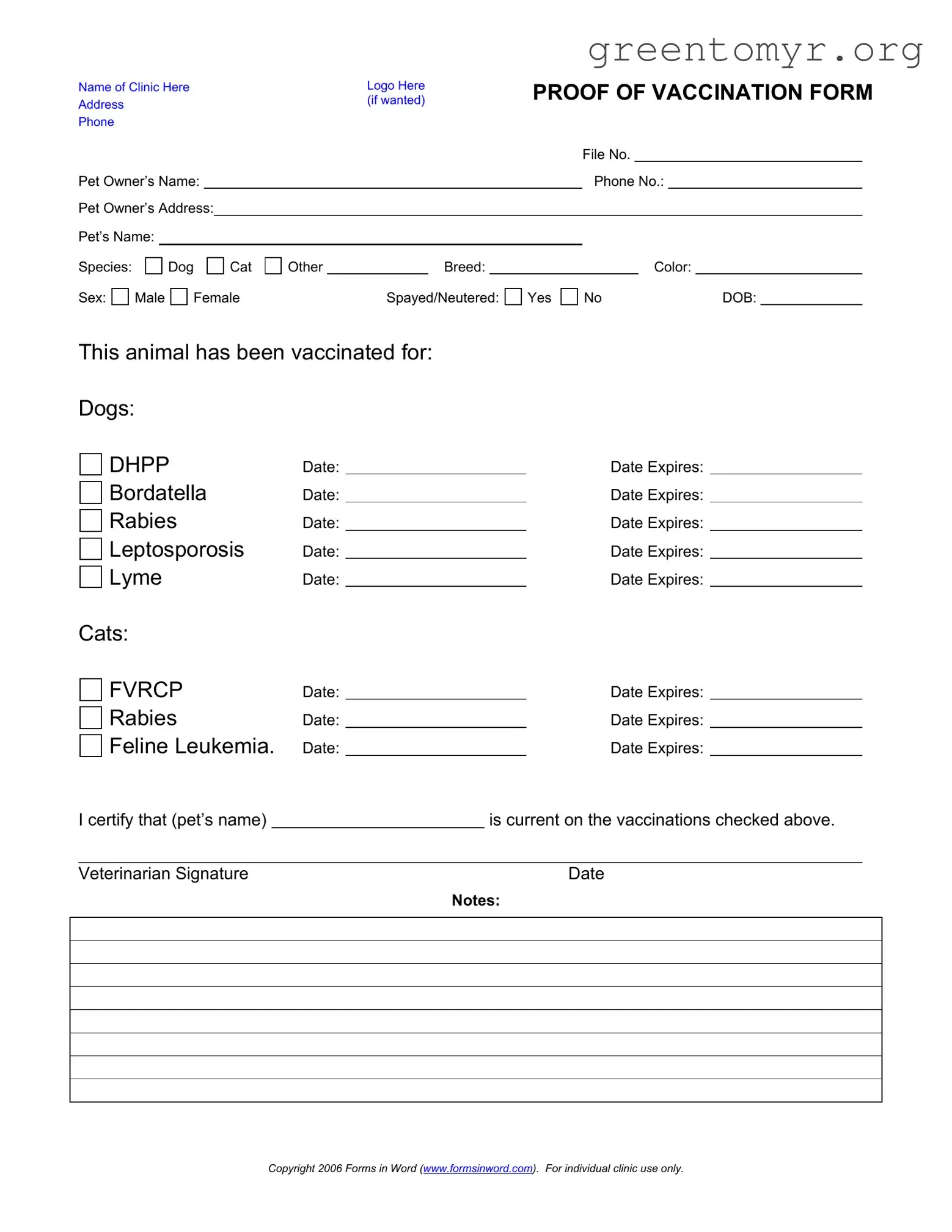The Proof of Vaccination Dog form is an essential document for pet owners seeking to ensure their dogs are up-to-date on their vaccinations. This form encompasses key details, including the pet owner's name, contact information, and the dog's specifics such as breed, color, and sex. It outlines the vaccinations the dog has received, including DHPP, Bordetella, Rabies, Leptospirosis, and Lyme, along with their respective dates and expiration details. The form also contains a certification section where the veterinarian attests to the dog's vaccination status, ensuring that all necessary vaccinations are current. With specified spaces for both the veterinarian's signature and date, this form provides a clear record of vaccination that can be invaluable for travel, boarding, or participating in training classes. Whether you're visiting a dog park or scheduling a grooming appointment, having this documentation readily available can simplify the process and demonstrate compliance with local health regulations.

